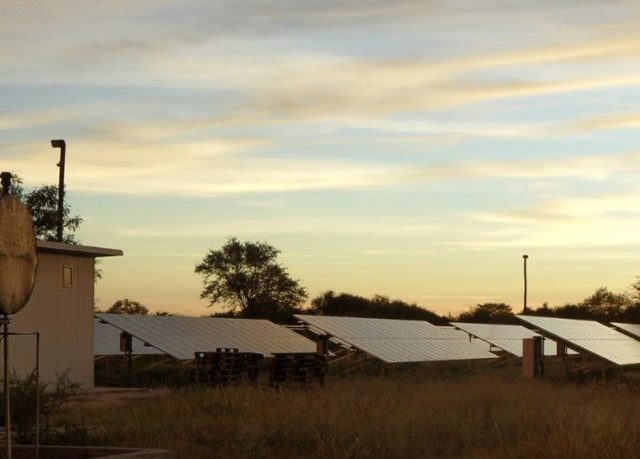- IBC SOLAR is supporting Bavarian universities to create a pilot project for expanding the energy supply into rural areas of Namibia.
- The aim of the project ‘PROCEED‘ is to achieve a sustainable improvement in the energy supply based on renewable energy.
- The research will also be funded by the Federal Ministry for Education and Research (BMBF) with approximately 1.24 million Euros in the next three years.
IBC SOLAR is supporting the University of Bayreuth, the Technical University of Ingolstadt and the Neu-Ulm University of Applied Sciences as an industry partner for the project in order to secure and increase the energy supply in remote areas of Namibia. The system house will be primarily responsible for the technical appraisal and long-term monitoring of existing systems during the project. This also includes developing system improvements for storage and control systems and delivering the corresponding components.
“Solar power is now cheaper than electricity from the grid and the PV market in Southern Africa has significant growth potential,” explains Albert Engelbrecht, Senior Vice President Solutions International at IBC SOLAR.
“We are very pleased to be helping the universities implement this project with our expertise and products. The project contains promising solutions which can also be used to improve the energy supply in other rural areas of Africa cost-effectively and efficiently,” says Engelbrecht.
Together with the system house, the researchers will use renewable energy and stand-alone grids referred to as “mini-grids” to implement the project. These decentralised power grids restricted to smaller areas are operated by local providers and are not embedded into a unified nationwide integrated grid. In cooperation with Namibian partners, decentralised models for the energy infrastructure will be developed in the future, which correspond to the local electricity demand, making use of current technical possibilities and are accepted by the rural population. These island grids ought to be economically viable and easy to maintain.
More than half of Namibia’s rural population has no access to electricity. Connecting households to the national power grid is neither technically nor economically practical in many parts of the country. The lack of access to electricity is one of the main drawbacks in the efforts to reduce poverty and achieve industrialisation.
Author: Ashley Theron
This article was originally published on ESI Africa and is republished with permission with minor editorial changes.











